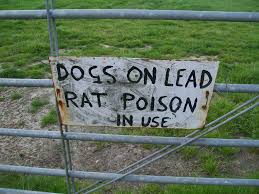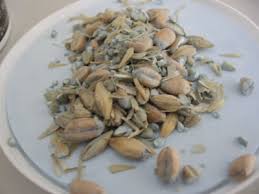Yes, dogs will eat rat poison. They simply see it as food. The problem is rat poison is made to taste good and since dogs are scavengers, they will eat it. It causes severe stomach pain and a thirst that cannot be quenched. If you have a dog the safest thing to do is simply not use rat poison. Look for an alternative such as traps.
Often the symptoms to indicate your dog has eaten rat poison may take days up to a week to show. If you know that your dog has eaten rat poison, get them to the vet as soon as possible, preferably within two hours of the incident.
This article is not intended as a substitute for medical or veterinary advice. If you suspect your dog ate rat poison, please contact your veterinarian immediately.
Ways your dog can be poisoned
 Your dog may be poisoned not only from eating the rat poison directly. They can also be poisoned by eating a rat that has already been poisoned. This means that even if you don’t use rat poison yourself your neighbors might.
Your dog may be poisoned not only from eating the rat poison directly. They can also be poisoned by eating a rat that has already been poisoned. This means that even if you don’t use rat poison yourself your neighbors might.
Another sad way a dog may be poisoned is deliberately. This may be done by a potential burglar or even an annoyed neighbor. Unfortunately, there are some bad people out there.
What are the types of rat poison
There are 4 different kinds of rat poison:
Cholecalciferol (activated vitamin D3) causes calcium and phosphorus levels to skyrocket in the body, which causes acute kidney failure. This can be deadly for your dog because the symptoms of poisoning may not begin to show for 1-2 days. By that time it may have already likely done swift, irreparable damage. Symptoms can include increased thirst and urination, weakness, lethargy, a decreased appetite, and halitosis (bad breath) may be seen.
Bromethalin is a neurotoxin. In dogs, a very low dose may not yield symptoms for several days or even up to a week after exposure. Initial signs may be depression, hindlimb weakness or paresis, decreased proprioception, ataxia, and possible tremors. At higher dosages, it can cause hyperexcitability, muscle tremors, grand mal seizures, hindlimb hyperreflexia, CNS depression, hyperthermia, and death.
Phosphides work by releasing deadly phosphine gas, which is produced when the poison mixes with stomach acid. Symptoms include drooling, nausea, stomach bloating, vomiting, abdominal pain, shock, collapse, seizures, liver damage, lung damage, and even death.
Long-acting anticoagulants (LAACs) are the most common of the rat poisons. This type of poison prevents the blood from clotting, resulting in internal bleeding. It generally takes 3-5 days before your pet will show signs of internal bleeding. Other symptoms include lethargy, coughing, difficulty breathing, weakness, and pale gums. Less common signs include vomiting, diarrhea, bloody urine, swollen joints, loss of appetite, and any unexplained bleeding, including gums and nose.

Dog rat poison survival rate
Even though a dog that has eaten rat poison can die, the survival rate is still quite high (over 90%) especially if you get your dog to the vet within two hours. The chances of survival are higher if the dog ingested anticoagulant versus bromethalin, cholecalciferol, or zinc phosphide.
What to do if you think your dog has eaten rat poison
If you suspect that your dog has consumed rat poison, you must call a veterinary clinic IMMEDIATELY. The veterinarian will advise you how to proceed. In most cases, you will need to get your dog to the vet clinic right away. If the poison was recently ingested, your vet may recommend that you induce vomiting. However, the vet might have you get your dog to them immediately so they can rapidly induce vomiting at the clinic.
Do not induce vomiting unless instructed to do so by your vet.
If the poison was recently consumed your vet will begin the appropriate treatment. In some cases, a substance called activated charcoal is administered by mouth. Activated charcoal prevents toxins from being absorbed through the gastrointestinal tract.
In other cases, the vet may recommend vitamin K injections. Depending on the time of poison ingestion and the amount ingested, your vet may need to run diagnostic tests and perform additional treatments. Your dog may need to be admitted to the hospital for advanced tests and treatments.
The prognosis depends on the type of chemical in the rat poison, the amount eaten and the time that has passed since ingestion. Unfortunately, the prognosis is usually poor if the dog is already showing advanced signs of toxicity.
Remember, time is of the essence after a dog has eaten rat poison. Do not wait to contact a veterinarian.
Related Posts